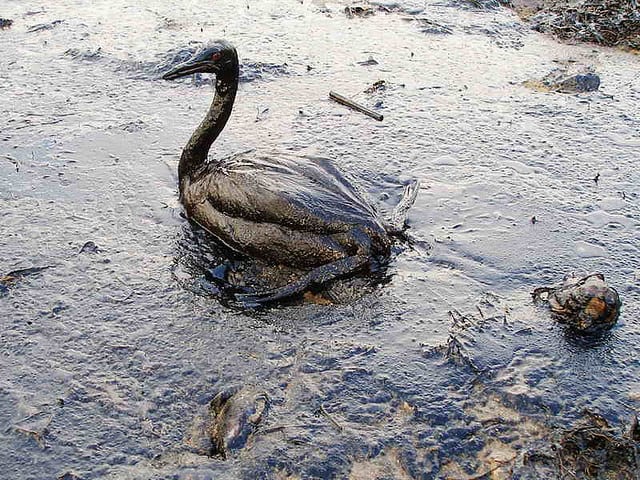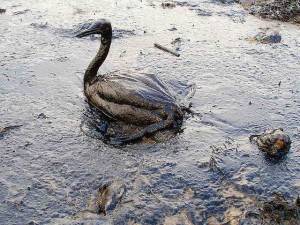People occasionally forgive, but nature never does.
No, the quote is not a quick one-liner from a Steven Seagal movie. That was Pope Francis to the president of Ecuador one year ago, and his remarks tip his hand for a forthcoming document that will address humanity’s relationship with the environment. However, it shouldn’t take a papal document to remind us humans to mind our non-human neighbors. Two disasters – one past, the other present – serve as a reminder that human carelessness damages our environment and our credibility with Mother Nature.
Twenty-four Springtimes before that blunt line was uttered, a rather large oil tanker ran aground in the Prince William Sound. Its name was the Exxon Valdez. For a detailed, impartial, and factual account of the spill, see this from The Exxon Valdez Oil Spill Trustee Council. The spill was one of the great ecological disasters of the 20th century, dumping more than a million barrels of crude oil into a pristine and fragile ecosystem. The cause? Human error, including but not limited to: (1) tired workers navigating the ship poorly; (2) a lack of oversight by Exxon; (3) the Coast Guard’s poor traffic control; and (4) a captain under the influence of alcohol. Those are many different parties who assumed that another party had everything under control. And we all know what happens when we assume…
Millions of barrels of oil may attract the spectacle of the news, but the simple water bottle or plastic bag lying in a vacant lot can have the same ecological impact. The recent disappearance of Malaysian Air flight 370 has reminded the world not only of air safety but of the environmental effects of human carelessness. National Geographic has recently highlighted the presence and formation of garbage patches lying in various parts of our oceans. In our efforts to find this missing plane, rescue crews have called attention to these enormous trash dumps composed of non-biodegradable plastics spread over large swaths of ocean. That plastic Walgreens bag that just blew past me in the wind? Who knows, it may end up between California and Hawaii. Even though the ecological risks are great from such a minor piece of litter, no countries have stepped up to tackle the growing environmental threat of garbage patches as they exist in international waters.
Whether it’s crude oil, plane parts, or plastic bags, nature seems to be very patient with the way we people treat it. Let’s hope that we can solve these ecological issues before Mother Nature’s patience wears too thin. If not us, then who?



